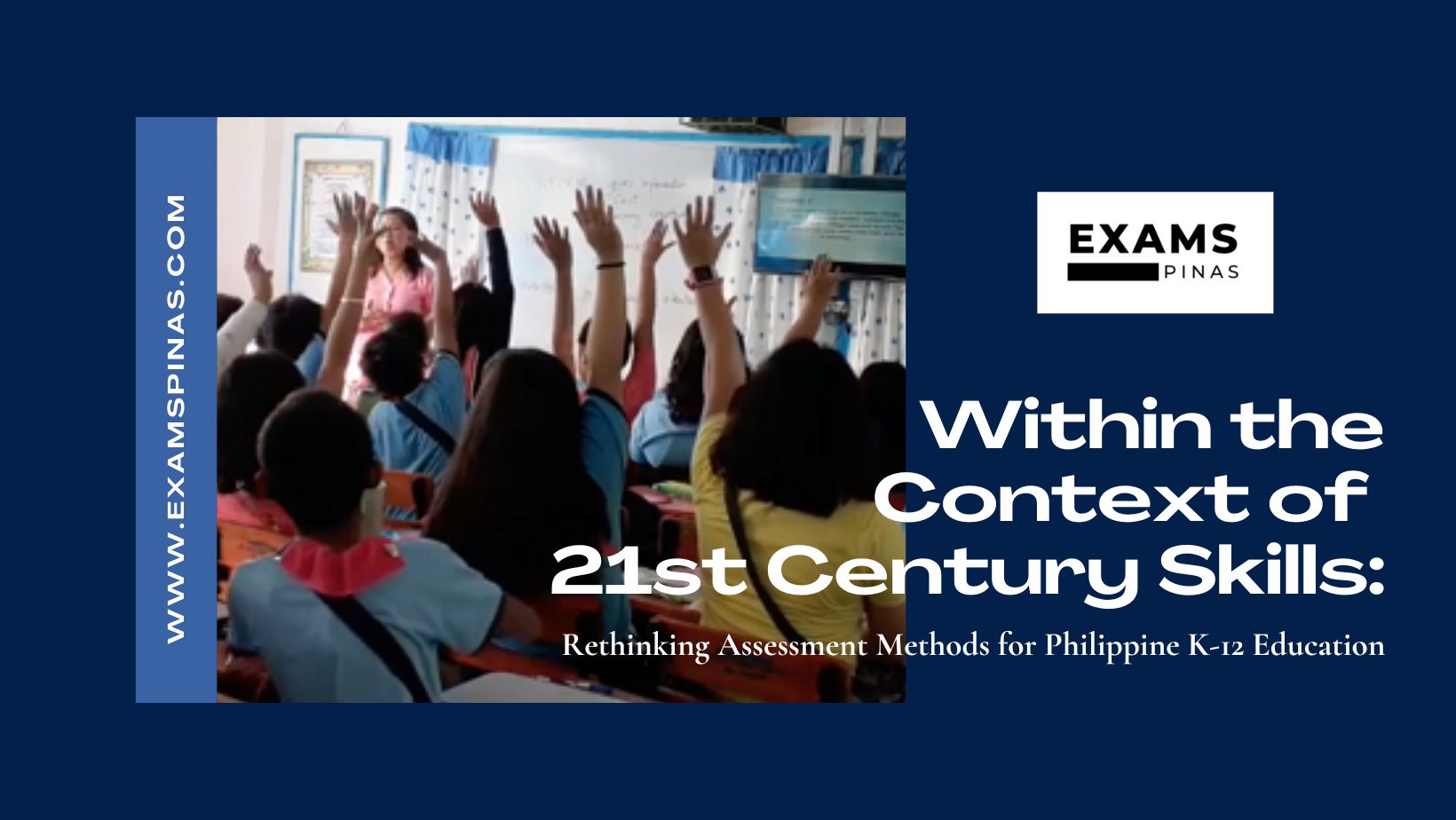In the ever-evolving landscape of education, it’s imperative to adapt assessment methods to foster the development of 21st-century skills among students in Philippine K-12 education. This article delves into the necessity of rethinking assessment approaches to align with the demands of the modern world, emphasizing critical thinking, collaboration, and digital literacy.
The Evolution of Education in the 21st Century
Embracing 21st Century Skills
The shift towards a knowledge-based economy demands more than traditional academic knowledge. Employers seek individuals proficient in critical thinking, collaboration, communication, and digital literacy – collectively known as 21st-century skills.
Challenges of Traditional Assessment Methods
Traditional assessment methods often prioritize rote memorization and regurgitation of facts, failing to adequately measure students’ proficiency in 21st-century skills. As a result, there’s a disconnect between classroom learning and real-world application.
Redefining Assessment Methods for 21st Century Skills
Integrating Performance-Based Assessments
Performance-based assessments provide a holistic view of students’ abilities by evaluating their application of knowledge in real-world scenarios. Tasks such as project-based learning, presentations, and problem-solving activities encourage critical thinking and collaboration.
Leveraging Technology for Digital Literacy
Incorporating technology-enhanced assessments equips students with digital literacy skills essential for the 21st century. Online quizzes, multimedia projects, and coding exercises not only assess students’ digital proficiency but also enhance their ability to navigate the digital world effectively.
Fostering Collaborative Assessments
Collaborative assessments promote teamwork, communication, and interpersonal skills – vital components of 21st-century success. Group projects, peer evaluations, and collaborative problem-solving tasks encourage students to work together towards shared goals.
Implementing Change in Philippine K-12 Education
Teacher Training and Professional Development
Effective implementation of reimagined assessment methods requires comprehensive teacher training and professional development programs. Educators must be equipped with the knowledge and skills to design, administer, and evaluate assessments that align with 21st-century learning objectives.
Curriculum Alignment and Policy Reform
Curriculum frameworks and educational policies must reflect the importance of 21st-century skills in student success. Alignment of learning standards, assessment criteria, and graduation requirements ensures a cohesive approach to fostering holistic student development.
Empowering Students for Success in the 21st Century
Rethinking assessment methods in Philippine K-12 education is not merely about measuring academic knowledge but empowering students with the skills they need to thrive in the 21st century. By embracing performance-based assessments, leveraging technology, and fostering collaboration, educators can cultivate a generation of learners equipped to navigate the complexities of the modern world with confidence and competence.

